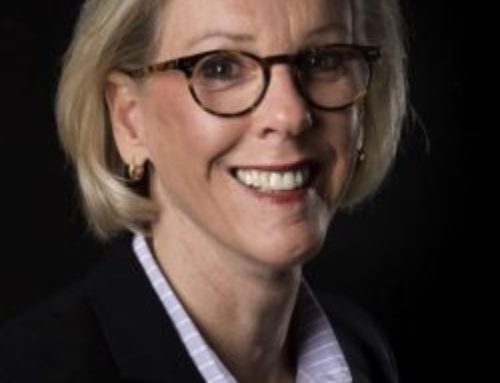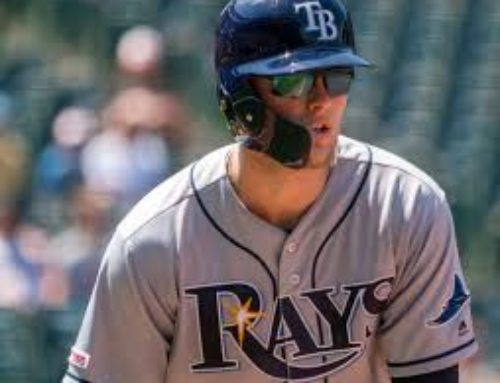The 32-year-old has been waiting his whole life for this opportunity.
By JOEY JOHNSTON
The Tampa Tribune
(c) Tampa Bay Times. Originally published Jan. 18, 2009.
TAMPA – In a decades-long tradition, Hofstra University’s senior football players are honored at a post-season banquet. Coaches introduce them with a nickname, which describes their best qualities.
Hit Man.
All Day.
Lunch Box.
In The Trenches.
“You know, football stuff, some of it serious, sometimes it got a laugh,” said Adam Brown, a former Hofstra linebacker.
When Hofstra cornerback Raheem Morris approached the podium in 1998, the nickname was obvious.
The Coach.
It fit.
And it was never more appropriate than Saturday afternoon, when Morris was named head coach of the Tampa Bay Buccaneers, less than 24 hours after the sudden firing of Jon Gruden, less than one month after being named the team’s defensive coordinator. According to people who know him best, it doesn’t matter that Morris is just 32 years old. It doesn’t matter that he has no head-coaching experience – at any level.
He was born for this.
“He’s a leader now and he was a leader as a child,” said his mother, Valerie Morris. “He was never a follower, never one of those kids just drifting along. He was always committed. And if he’s your friend, believe me, you’ve got a friend for life. Raheem is one of those guys who just makes an impression on people.”
Morris might be considered the most famous alumnus of Irvington (N.J.) High School – were it not for a couple of former students named Jerry Lewis and Queen Latifah.
He could be known as the greatest player in Hofstra’s modern football history – were it not for eventual Pro Bowlers such as Wayne Chrebet and Lance Schulters.
Really, his age is not unique, given the NFL trend of hiring new blood, given Gruden’s ascension to head coaching at age 34 and his enduring status as the youngest man ever to win a Super Bowl.
“For people who don’t know about Raheem Morris, just you wait,” said Kahmal Roy, a former teammate who is now Hofstra’s receivers coach. “You can’t really compare him to anybody. He’s his own man, a ball of energy, always smiling and laughing, always encouraging you and always, always, always teaching you something.”
The Coach.
A Player’s Coach
This coach still has a player’s mentality, elevating and chest-bumping in the celebratory moments. Except for that time he missed – and landed flat on his back.
“Then he’s up saying, ‘I got off the ground. That wasn’t a loaf. I wasn’t loafing,’ ” Bucs safety Jermaine Phillips said. “We all laughed. He’s one of us. He knows who to pat on the back and who to kick in the butt.”
This coach will not be very impressed by his new palatial office.
“He’s not a big-ego guy,” Bucs cornerback Ronde Barber said.
This coach will let everyone know where he stands.
“Raheem was mouthy, competitive, but in a great way,” said former Hofstra coach Joe Gardi. “He loved that battle, whether it was one-on-one, seven-on-seven, the most routine practice, the biggest game. He saw things develop before others did. He ran the defense from the field. He was a coach, even then.”
Gardi, nearing his 70th birthday, once was defensive coordinator of the New York Jets, the architect of the “Sack Exchange,” which featured players such as Mark Gastineau, Marty Lyons and Joe Klecko.
At Hofstra, he still raves about Chrebet, a touchdown machine. He brags on Schulters, the best college player he ever had, who once hurdled a center, blocked a field-goal attempt and returned it for a touchdown.
But Raheem Morris?
“He probably didn’t make the biggest impact on the surface,” Gardi said. “But he was the player I never could do without. I loved him. Loved him.”
When Morris was a senior, he shifted from safety to cornerback. Gardi said it probably cost him a shot at the NFL, but Morris willingly accepted it for the team.
“I was wondering why he didn’t give it [the NFL] a try,” said Hilton Vaughn, Morris’ father, who works nights as a bus mechanic for the New Jersey transit authority. “And he said, ‘Daddy, I got into this to be a coach.’ “
Introduction To The NFL
Upon graduation, Morris could have become a teacher on Long Island. The offer was $35,000.
He chose a spot on Cornell University’s coaching staff.
Salary: $5,000.
“My mom looked at me like I was nuts,” Morris said.
But he was off, first to Cornell, then back to Hofstra, where Gardi couldn’t wait.
One day, Jets coach Herm Edwards, whose team worked out on the Hofstra campus, was out for a jog. Gardi called him over.
“Look at my guy,” Gardi said, motioning to Morris, who was coaching the defensive backs. “Now he would be a great pro coach.”
A little later, Edwards found Morris. In a fast-talking, rat-a-tat-tat exchange, a career path was forged.
You want to work with us?
Yeah, let’s go.
Morris was given an NFL minority internship. Gardi later recommended him to Bucs defensive coordinator Monte Kiffin, who needed a quality-control coach.
“Monte later told me, ‘Joe, after seeing how Raheem works and how tenacious he is, you just send the next one on because anybody you recommend is solid with me,’ ” Gardi said.
Tenacious.
Now there’s a Raheem Morris kind of word.
“You catch a pass on him in practice and that would be the worst thing you could do,” said Roy, the former Hofstra receiver. “You knew Raheem would be in your grill, making sure you weren’t happy about the success you had. He took it that personally. But that made him great.”
“Here’s a guy who has gotten what he wants out of life – and he’ll continue to get what he wants,” said Brown, the former Hofstra linebacker. “I mean, he lights up a room. You want to hear him. You want to follow him anywhere.”
Morris’ career has led him to One Buccaneer Place, to the big office, to a franchise seeking a new direction. To another 32-year-old, the task might seem daunting. To Morris, it seems just right.
“You’ve got to go through the grind and you pride yourself in going through the grind,” Morris said. “It becomes contagious.
“You want to keep doing it until you can’t do it any more.”
It’s the life of a coach. It’s the only life he ever wanted. It’s the life that seems to fit.
ALL ABOUT RAHEEM MORRIS
Favorite Food: “I’m allergic to shellfish, so that’s out. So I’m a meat and potatoes guy. I’m a steak guy.”
Favorite Movie: “Either ‘Braveheart’ or ‘Old School.'”
Favorite TV Show: “Easy one. It’s ’24.’ No doubt. I’m locked in there.”
Favorite Athlete: “Growing up, it was Magic Johnson.”
Favorite Sports Teams As A Kid: “I was a Los Angeles Lakers fan, a Dallas Cowboys fan in football.”
Favorite Sport (Other Than Football): “Basketball. I had a chance to play [in college]. I was a little short but decent. Played a little shooting guard, a little point guard.”
Person You Would Love To Meet: “Dr. Martin Luther King Jr. I would just want to know how he went through life with such great character. How did he motivate so many people? And I’d want to steal some techniques from him, just like I’ve stolen the techniques of all the coaches I’ve worked under.”
Favorite Defensive Back: “Ronde Barber. If I don’t say that, I’m in trouble.”
Players You Emulated: “My dad used to always show me tapes of Jack Tatum. I watched Ronnie Lott, Steve Atwater, guys like that. The big hitters.”
Best Receiver You Ever Coached Against: “Steve Smith [Carolina Panthers]. There are a lot of great ones, but he’s the best.”
Best Receiver You Ever Covered: “When I was at Hofstra, we played Randy Moss [at Marshall University]. He was incredible. I actually had an interception off Chad Pennington. I’m not sure if I got it off Randy, but it was nice.”





